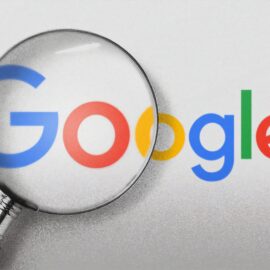

This article is an excerpt from the Shortform book guide to "Hit Refresh" by Satya Nadella. Shortform has the world's best summaries and analyses of books you should be reading.
Like this article? Sign up for a free trial here.
Can business be a force for good in the world? How might technological advances empower everyone?
Microsoft CEO Satya Nadella believes that companies should be driven not just by profit but by their potential to make the world a better place for the greatest possible number of people. He discusses the upside to technological innovation and shares three ethical responsibilities of business.
Keep reading for Nadella’s take on ethical business.
Ethical Business
Nadella reveals that one of the things that first attracted him to a career at Microsoft was the “democratizing” tech mission of Microsoft. Bill Gates had dreamed of making a PC a reality in every home. Nadella insists that technology can and should still be democratic at heart, empowering people all over the planet through its innovations. It’s in this context that he shares three ethical responsibilities of business that must be taken seriously in order to give rise to the potential benefits.
(Shortform note: Staying true to Nadella’s philosophy of making the world a better place, Microsoft announced the creation of a $1 billion Climate Innovation Fund and revealed a plan to be carbon negative by 2030. In an interview, Nadella stressed that a corporation’s purpose is to find “profitable solutions to the problems of the people and the planet,” arguing that profits won’t matter in the long run if it means creating more problems for the planet.)
The Upsides to Technological Innovation
Nadella points out that technology often brings a lot of good developments to people’s lives, especially in areas such as education and health care. He writes about the medical technology that helped to treat his son and the ways technology can help developing countries connect and keep pace with the wider world. As an example, he cites a group of young women in Egypt who built an app to help Syrian refugees find assistance once they arrived in Egypt.
| Counterpoint: The Downsides of Over-Reliance on Technology While technology is frequently a force for good, as Nadella emphasizes, he never addresses the darker side of technological dependency. Technology—and in particular, social media—has brought with it a host of downsides, some of which are strongly correlated to negative mental health results, especially in regard to body image and social alienation. One study discusses the links between heavy social media use and worsening mental health outcomes, while the BBC points out that conspiracy theories can gain ground to a dangerous degree with social media users, in comparison with more traditional forms of media consumption. In fact, some medical experts even recommend undergoing a digital detox from time to time to avoid over-reliance on social media and tech, as a means of safeguarding personal mental well-being. |
The Ethical Responsibilities of Tech Companies
While technology can be a force for good, Nadella frequently emphasizes the need for tech companies to recognize the power that they hold over others, and the impact their products can have—both for better and for worse—on the world around them. In particular, Nadella addresses three key areas in which tech companies have ethical responsibilities: nurturing local entrepreneurship in the developing world, standing up for moral values, and developing new technologies in a way that empowers people instead of harming them.
Responsibility #1: Nurturing Entrepreneurs in the Developing World
Nadella argues that many political leaders in the developing world make a serious mistake: They become so obsessed with attracting major Western tech companies to their countries that they tend to overlook or deliberately neglect their homegrown talent and businesses. Ethical tech companies can nurture developing-world talent both through fostering local partnerships and through helping to make technology as accessible as possible so that local entrepreneurs can in turn have greater opportunities for pursuing their own innovations.
For example, Nadella writes that an e-health company in India is embracing the latest Microsoft cloud and AI technology—something many government leaders are resistant to—to provide a diagnostics service that can be accessible to hospitals in rural areas.
(Shortform note: If tech companies are at a loss as to how to partner with developing countries, they can consider working with the United Nations Technology Bank for Least Developed Countries. Established in 2018, the organization is helping the 46 least developed countries—including places like Afghanistan, Gambia, and Rwanda—gain access to technology, in part by matching them with partners in the private sector. The end goal is sustainable development through local skills development and economic self-reliance.)
Responsibility #2: Standing Up for Moral Values, Legally and Politically
While Nadella discusses the importance of collaboration at various points in Hit Refresh, perhaps its most surprising manifestation is the way in which Microsoft sometimes joined its rivals to form a united front against the US government. Nadella argues that companies have an ethical imperative to stand up for certain moral values, such as safeguarding freedom of information and customer privacy.
An example of this is when, after a 2015 terrorist attack in San Bernadino, California, the US government tried to force Apple into helping it break into a cellphone belonging to one of the terrorists. Apple refused, arguing that creating the means to break into the terrorist’s cellphone could permanently compromise security for all iPhone customers by creating a “backdoor” means of entry into iPhone data. Microsoft supported Apple’s stance, with Nadella arguing that certain values must be protected even in the face of heightened security concerns.
| Counterpoint: Privacy and Advertising in Tech While Nadella argues against government overreach at various points in Hit Refresh, he doesn’t acknowledge the serious privacy violations of tech companies in terms of advertising and the collection of consumer data. The increasing power private companies and advertisers are gaining through the mass collection of data has led to efforts by the European Union to ensure greater consumer protection through a policy known as GDPR (General Data Protection Regulation), with hefty fines imposed on companies—such as Google—found in violation of these rules. In the case of Google, the tech giant was found guilty of failing to seek adequate consent from its users for targeted advertising campaigns, and for having difficult-to-access data processing statements. Nadella’s reluctance to address—or even acknowledge—these issues reveals his vested interest in maintaining the unchecked power of tech companies while glossing over the ways in which government bodies are standing up for the rights of the average consumer. |
Responsibility #3: Technology as Empowerment, Not Harm
Nadella also emphasizes the need to develop AI and other automation in a way that does not disempower people or bring too much hardship or unemployment. He lays out three core principles that shape Microsoft’s approach to AI:
1) Augmentation, not replacement. Nadella argues that AI can’t and shouldn’t lead to widespread permanent unemployment or any other form of human suffering. Instead, he stresses that AI should involve meaningful collaboration and augmentation between humans and technology, creating new employment opportunities instead of just eliminating old ones.
2) Transparency in AI tech. Since AI can be quite intrusive and gather an enormous amount of sensitive personal data with ease, Nadella acknowledges the pressing need to ensure that AI technology is transparent in how it collects and uses data and that respect for consumer privacy should be an inherent part of Microsoft’s AI technology. AI must be designed for intelligent privacy, embodying sophisticated protections that secure personal and group information in ways that earn trust.
3) Inclusivity. Nadella says that AI technology must be sensitive to the needs of inclusion and diversity across all ethnic, racial, and gender categories. To ensure this outcome, we need to ensure that the tech industry isn’t controlled by the privileged few and that the design of these systems has the input and participation of people from various cultures.

———End of Preview———
Like what you just read? Read the rest of the world's best book summary and analysis of Satya Nadella's "Hit Refresh" at Shortform.
Here's what you'll find in our full Hit Refresh summary:
- How Satya Nadella brought Microsoft back from its decline
- Actionable advice to help you reinvigorate your company
- A look at the ethical responsibilities of tech companies






